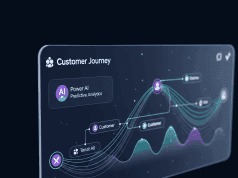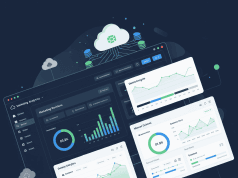In today’s digital landscape, where marketing is increasingly data-driven, Customer Data Platforms (CDPs) have emerged as vital tools for organizations seeking to enhance their marketing strategies. These platforms enable businesses to collect, unify, and analyze customer data from various sources, delivering comprehensive insights that drive targeted marketing efforts. Here we explore five leading CDPs that are revolutionizing the way companies approach customer engagement and marketing.
1. Segment
Segment is a robust CDP that excels in unifying customer data from several touchpoints—web, mobile, email, and more—into a single view. With its easy-to-use interface, businesses can track user interactions, preferences, and behavior, allowing for highly personalized and timely marketing messages. Additionally, Segment integrates seamlessly with a vast array of marketing tools, enabling marketers to implement data-driven strategies effortlessly. Its ability to create user personas and segments ensures that campaigns are tailored to meet specific audience needs.
Key Features:
- Real-time data collection
- Advanced segmentation capabilities
- Extensive integrations with over 300 tools
2. BlueConic
BlueConic is designed to empower marketers by providing them with a 360-degree view of their customers. Its strength lies in its ability to collect and centralize data while ensuring compliance with privacy regulations. By tracking customer interactions across multiple channels, BlueConic enables businesses to deliver personalized experiences and optimize their marketing efforts dynamically. The platform also features an intuitive user interface that supports easy onboarding and usage for marketing teams.
Key Features:
- Identity resolution capabilities
- Automated data collection across multiple touchpoints
- Insights to track customer engagement and behavior
3. Tealium
Tealium stands out with its focus on real-time data accessibility and extensive integration capabilities. Offering a unified approach to customer data management, Tealium allows marketers to create actionable insights from customer behavior data. With its Tag Management System (TMS), organizations can easily manage various marketing tags, enabling better performance tracking and optimization across channels. This real-time availability of data supports timely decision-making and agile marketing strategies.
Key Features:
- Real-time customer data orchestration
- Tag management and application
- Integration with various marketing tools and platforms
4. Salesforce CDP
As part of the comprehensive Salesforce ecosystem, Salesforce CDP leverages customer data to provide a holistic view that enhances customer relationships. This platform is particularly advantageous for businesses already using other Salesforce products, as it allows for seamless integration across sales, service, and marketing operations. The ability to analyze customer data and derive insights helps businesses create personalized marketing campaigns, improving customer experience and retention rates.
Key Features:
- Built-in analytics for data-driven decision-making
- Integration with existing Salesforce products
- Advanced AI capabilities for predictive analytics
5. Optimove
Optimove takes a unique approach to customer data by emphasizing relationship marketing. This platform leverages customer data to enable brands to create automated, personalized marketing campaigns that evolve based on customer interactions and preferences. The sophisticated analytics offered by Optimove allow for nuanced segmentation and targeted re-engagement strategies, making it ideal for businesses focused on long-term customer loyalty.
Key Features:
- Predictive analytics for marketing campaigns
- Automated customer engagement strategies
- Comprehensive customer relationship management
Conclusion
The revolution of Customer Data Platforms is transforming marketing strategies by providing organizations with the tools necessary to harness the power of customer data. By leveraging these platforms, businesses can achieve a more profound understanding of their audience, improve engagement, and increase overall marketing effectiveness. As technology continues to evolve, the adoption of leading CDPs will undoubtedly become essential for staying competitive in a rapidly changing marketplace.









